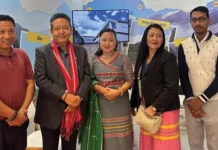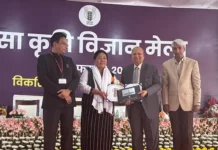[ Badak Yomgam ]
Stewardship is defined as responsible management and care of resources. In rural regions, these resources encompass natural landscapes like forests, rivers and wildlife, as well as cultural heritage such as traditional practices, historic sites, local crafts and the local communities themselves.
When communities actively practice stewardship, they contribute to environmental protection by conserving biodiversity, maintaining clean water, reducing pollution and managing waste, which makes the area more attractive to ecotourists. They also preserve cultural aspects by safeguarding local traditions, arts and festivals, which draws in cultural tourists seeking authentic experiences. They also help to maintain the scenic beauty of the rural landscape, a key attraction for many visitors. Moreover, stewardship helps build trust and authenticity, which is increasingly sought after by tourists interested in rural experiences.
Active community involvement in stewardship leads to genuine experiences where tourists can witness and participate in real local life rather than a commercialized facade. This is evident in community-based tourism (CBT) initiatives in Arunachal Pradesh, where communities lead stewardship efforts and have a significant say in tourism development. This also fosters local ownership, as community members become invested in providing high quality experiences and sharing their unique heritage, resulting in better service and more engaging interactions.
Local homestay operators in Arunachal are a prime example of this, offering authentic interactions and sharing their unique selling propositions (USP), leading to the development of distinct tourism products and experiences that set a rural area apart: agri-tourism initiatives that showcase sustainable farming practices, wildlife conservation tours led by local guides, and cultural workshops where tourists learn traditional crafts directly from community members. These examples are highly applicable to Arunachal, where such initiatives can showcase unique local practices and conservation efforts.
Stewardship emphasizes the inherent interdependence between human wellbeing and a healthy environment. Rural communities often depend directly on natural resources for their livelihoods, and sustainable tourism reinforces this connection. Tourism revenue can provide a strong financial incentive for communities to protect their natural assets as these attractions draw visitors.
For local homestay operators in Arunachal, the revenue generated directly supports the protection of their natural surroundings. When communities lead stewardship efforts and have a strong input in tourism development, it empowers them through local decision-making, ensuring that tourism aligns with their values and needs, directly benefitting them while minimizing negative impacts. This involvement can also lead to skill development, entrepreneurship and diversified income streams for rural residents. Sustainable tourism, built on stewardship, also enhances the resilience of rural areas to external shocks by protecting their natural and cultural capital, providing a stronger base for adaptation and thriving.
This relationship fosters rural tourism by attracting responsible travellers who seek meaningful interactions and wish to contribute positively to the places they visit. Satisfied visitors are likely to provide word-of-mouth, leading to organic growth in tourism. By prioritizing sustainability and community wellbeing, rural tourism achieves long-term viability, moving beyond short-term economic gains. This approach prevents over-tourism, preserves local identity and maintains the quality of the visitor experience. Stewardship serves as a bridge connecting the natural and cultural assets of rural areas with the aspiration desires of responsible tourists. This connection cultivates a form of rural tourism that is not only economically beneficial but also environmentally sound, culturally enriching and socially equitable, leading to true sustainability. (The contributor is a PhD scholar at NEHU, Shillong)




